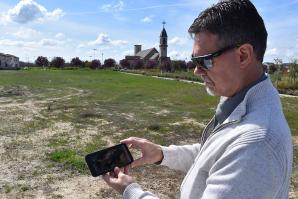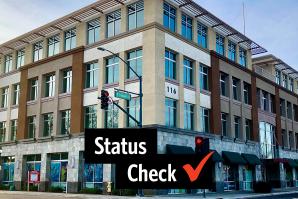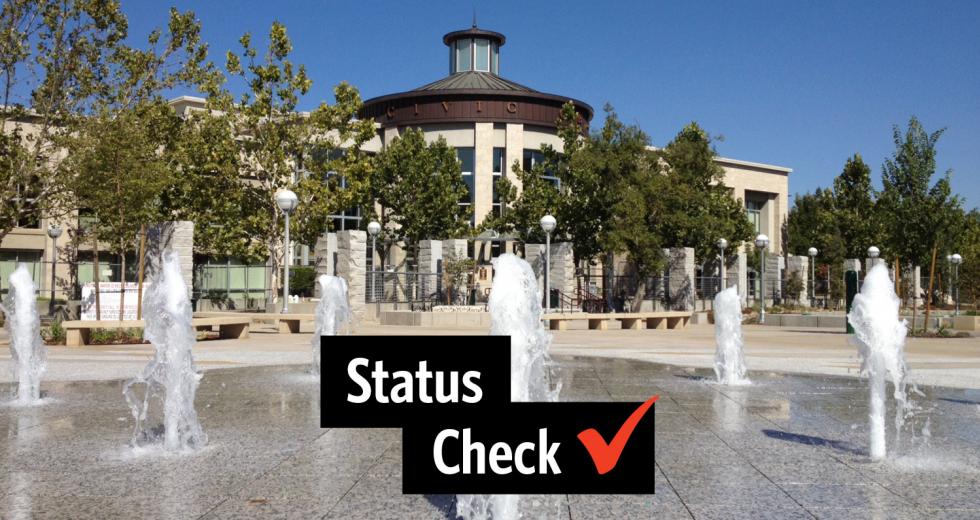Never did Roseville City Manager Dominick Casey anticipate a pandemic when making the case to voters for Measure B. The half-cent sales tax increase, a permanent one, passed in November 2018.
But Casey, who has served as city manager since March 2018 and has worked for the city since 2011, had an idea of what a tax increase might do to help during tough financial times.
“We certainly didn’t predict a global pandemic, but we were anticipating another recession,” Casey says. “Without Measure B, candidly, we’d be in a very different position. We’d be staring down the face of a $20 million deficit, and we would not have the general-fund stabilization reserves that we have today.”
The sales tax measure was intended to help address lingering issues from the Great Recession, including unfinished projects and deferred pension obligations. However, amid a recession triggered by the ongoing COVID-19 pandemic, the money is useful now.
Measure B, which went into effect in April 2019, increased sales tax in Roseville from 7.25 percent to 7.75 percent. “I can tell you going back pre-COVID, into March earlier this year, it was working exactly as we had hoped it would — matter of fact, even a little bit better,” Casey says.
Every little bit matters in Roseville, which prides itself as a full-service city, with a general fund of $158 million in the 2019-20 fiscal year and a total budget, including restricted enterprise funds, of $554 million, according to city web sources.
Measure B followed the several months-long work of a 20-member Community Priorities Advisory Committee, which Comstock’s previously reported about (“Get Spent” in February 2018). This committee helped residents see that more funds were needed to maintain city services. Different department directors and city officials presented at CPAC meetings, with breakout sessions for the members to prioritize which services mattered most. Not long after the CPAC concluded its work, city leaders put the measure on the November 2018 ballot.
City officials budgeted receiving “an estimated $18.4 million annually,” from Measure B, according to the Placer Elections website. Roseville wound up with closer to $20 million the first year the tax was in effect, Casey says. The money was used to hire five police officers and complete two unfinished citywide parks, Harry Crabb Park and Central Park.
“That was really about maintaining service levels and making sure that we were providing services equitably all through Roseville,” Casey says.
Since Measure B passed, Roseville has also moved toward creating emergency reserve and general fund stabilization funds of approximately $22 million apiece. “Right now, we’re at about $15.9 (million for general fund stabilization fund) but fortunately we did close out last year’s budget in a bit of a surplus and we’ll be going to the city council probably early next year to make a recommendation to finish funding that reserve with those surplus dollars,” Casey says.
It’s unclear how much of an effect COVID-19 will have on the city’s budget long term. In an Oct. 21 communication to the city council, Roseville Budget Manager Scott Pettingell said the city’s Bradley-Burns sales tax revenue — essentially, the regular sales tax that is deposited into the general fund and used for discretionary and transportation-related spending — “ended the fiscal year lower than budget by $2.5 million, at $52.7 million” and that sales tax was down 8.2 percent from the 2018-19 fiscal year.
Pettingell also wrote that pandemic-related retail closures and tax extension and payment deferrals by the state were affecting sales tax, but it was too soon to know by how much.
“I think that you have to be preparing yourself for a little drop in sales tax,” Casey says. “We’re anticipating potentially anywhere from $1 million to $2 million short in our Bradley-Burns sales tax. So that’s something that we’re concerned (about). But we’re seeing a huge uptick in online sales.”
Casey says Roseville does receive some sales tax revenue from online shopping as a result of the 2018 South Dakota v. Wayfair decision by the U.S. Supreme Court. Previously, online transactions weren’t taxed.
Regardless of what happens with the pandemic, Casey doesn’t anticipate an additional sales tax measure for Roseville residents. “We’re certainly looking to diversify our revenue and looking at different fees,” Casey says. “But at this point, another sales tax, given where the economy is and the pandemic recession, that’s something the council and the community would really have to think long and hard about. I don’t see one in the near future.”
–
Get all our web exclusives in your mailbox every week: Sign up for the Comstock’s newsletter today!
Recommended For You

Status Check: Getting to the Other Side
Amy Seiwert back in Cincinnati after two-year run as Sacramento Ballet artistic director
Amy Seiwert’s term as the artistic director of the Sacramento Ballet ended in July, but she is continuing to create with dance companies in California and the Midwest.

Retail Projects in the Works for West Roseville
Residents in fast-developing part of south Placer County have been underserved
As west Roseville’s residential communities have rapidly developed in recent years, spreading farther toward the western border of Placer County, there have been few commercial amenities while developers have waited for a critical mass of population that could support new shopping centers.

Status Check: Sacramento’s Lavender Courtyard
The city’s first affordable housing project for LGBTQ older adults should break ground later this year
The vacant lot at 16th and F streets in Sacramento — the future site of Lavender Courtyard, the city’s first LGBTQ-friendly affordable housing for older adults — is still empty, but it won’t be for long.

Status Check: City of Roseville Buys Long-Empty Building
Former Kobra Properties building in downtown has been vacant for years
When Abe Alizadeh’s empire collapsed in 2008, eventually leading to a 56-month federal prison sentence for the developer for real estate fraud, the fate of a large unfinished building in downtown Roseville hung in the balance.



